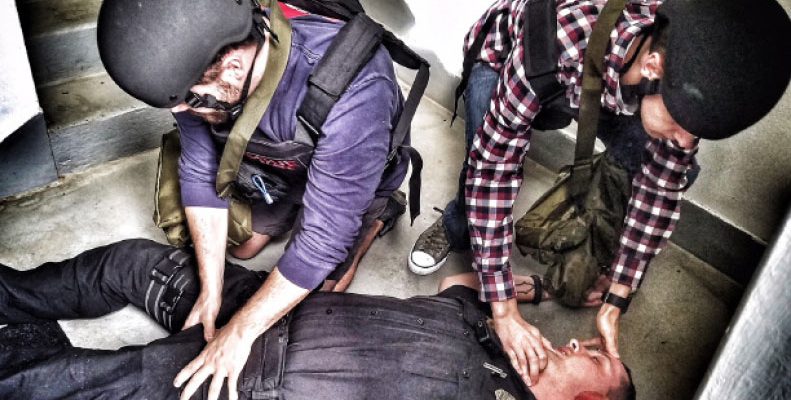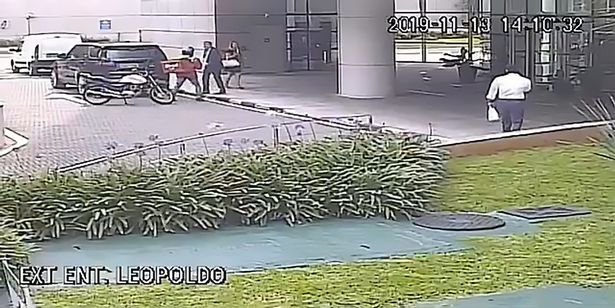We cast our eye over the main stories impacting the security industry. Here’s what’s appeared on the radar since the last issue.
The Fallacy of the Individual Bodyguard
It was the height of British military and government involvement in the ill-fated NATO-led effort to crush the Taliban, and Kabul was inundated with people needing close protection services. From diplomats attempting to build infrastructure and civil institutions to corporate honchos sniffing out potential business opportunities, there was no shortage of clients for security firms to pitch. As my conversation with the in-country manager progressed, I broached the subject of IBGs – individual bodyguards. I told him in no uncertain terms that the idea of having an individual effectively carry out the functions of a close protection team was utter and absolute flannel. His response: “Maybe, Bob. But it brings in the dollars!”
Counter-Ambush Tactics for Security Professionals – Part 1
By far the best method to accomplish this goal is to adopt a predictive, preventative strategy for protecting clients based on the tenets of Detect, Deter, and Defend. To effectively employ these tenets, we need some very specific soft and hard skills. In the protective operations world, the “soft” skills are sometimes referred to as Protective Intelligence (PI) while in other security disciplines they are referred to as situational and tactical awareness skills. If we are unable to prevent or avoid an attack, we need to have some expertise in specific “hard” skills such as use of firearms and security driving so that we can survive an ambush.
Tactical Vs Tacticool
The ‘tactical culture’ had flourished over the last few years, mainly due to the proliferation of video cameras and increasing engagement with social media platforms, which I believe is causing the lines between reality and the ‘tacticool’ entertainment world to become very, very blurred…
It takes very little these days to be a part of the tactical sub-culture that is trending, here’s how to do it. Simply, purchase a gun, where legal, get your hands on some tactical clothing, buy a bunch of ‘black op’ accessories, plug into ‘Soldier of Fortune’ social-media channels and perhaps even take some no-fail tactical training courses, then after a few months, hey presto, you’re an expert! Whereas, in the good old days, the only option, if you wanted this lifestyle, was to join the military – preferably the Infantry!
Deciding How To Start Your Career In Close Protection
Who, when initially looking for a close protection course, tried to find the cheapest course and quickest route possible to your badge? Who researched their training provider and checked out all the credentials and qualifications of their instructors?
Who doesn’t intend to do any other training until they find at least some work to pay back their initial training costs? Who, reading this, has attended an ‘accredited’ training course but has actually never yet done a day’s work as a designated protection officer? I could go on, but well… you get the picture!
Training for Survival
“The training is necessary because of the world we live in and the kinds of issues our students face,’’ said Wilson, who travels around the entire county to help students. “We deal with emotional, physical and psychological trauma. You’re always wondering if it’s going to be you or your school next.”
Global Risk RoundUp – March 2020
About Drum Cussac, a GardaWorld company
Because we put your people first, we’ve built cutting-edge risk and security which keeps up with the pace of change. The only risk and security platform to feature monthly updates, GlobalRiskManager is purpose built to be future-proof and can seamlessly integrate with your own systems. This, combined with over 20 years’ of industry knowledge and a team of in-house security experts, provides you with a comprehensive end-to-end risk and security solution – done your way.
The Rise in the Use of CCTV in Court Proceedings
An estimated 5.9 million CCTV cameras were in operation throughout the UK in 2016, making the British public one of the most surveilled in the world. Only Beijing has more CCTV cameras than London, where the average person will be recorded on camera 300 times in one day.
Global Risk RoundUp – Feb 2020
Global Risk RoundUp – Feb 2020
Our Global Risk partners, Drum Cussac, provide in-depth analysis of global risks via in-house experts, cutting edge technology and through a comprehensive global source network. Here is your summary of the incidents you need to know about from the last 30 days.
The Man in the Middle – Intro to Cybersecurity
Welcome to a third article in the series looking at introductions to cyber security. We’ll be looking at a type of attack which most people will be familiar with in principle, if not in technical practice.
The basic idea is simple – an attacker sits between two trusting parties, intercepting their communication and impersonating each to the other. Obviously this is somewhat harder in practice where people are, for example, sitting in a room together, but even a phone call gives potential for an eavesdropper or impersonator.
Global Risk RoundUp – January 2020
Global Risk RoundUp – January 2020. Our Global Risk partners, Drum Cussac, provide in-depth analysis of global risks via in-house experts, cutting edge technology and through a comprehensive global source network. Here is your summary of the incidents you need to know about from the last 30 days.
Executive Protection in Russia
Risk and Retaliation at the World Cup and Beyond. On 3/26/2018, the United States joined 20 nations including the UK, Canada, and Italy in what is said to be the largest coordinated expulsion of Russian intelligence officers in history.
Over 100 Russian diplomats were told to leave their foreign postings in response to the poisoning of a former Russian spy living in the UK. Russia promised to retaliate against this “provocative gesture”.
Should protection officers be trained in unarmed combat?
Protection officers worldwide who have extensive unarmed combat training will unreservedly answer this question with; “Of course!! How can a protection officer not have any self-defense or unarmed combat training! How can a protection officer not know how to physically protect?”
Social Engineering and Cybersecurity
We’ll be looking at a collection of tactics used by attackers to bypass security technology by targeting the weakest link – the human in the chain.
Social engineering is really just an overly technical term for knowing how to persuade people to do something against their best interests or against their better judgment.
Hero bodyguard throws himself in front of client after motorbike hitman opens fire
A man on a motorbike cruises into the hotel grounds and pulls up close behind the SUV when the bodyguard places himself between the woman and the attacker.
Global Risk RoundUp – November 2019
Our Global Risk partners, Drum Cussac, provide in-depth analysis of global risks via in-house experts, cutting edge technology and through a comprehensive global source network. Here is your summary of the incidents you need to know about from the last 30 days.
How To Stay Present On Task
To be present means to be pre-sent, to already be there when it happens. Since the nature of the mind is to wander, it must somehow be coaxed into the current moment, tamed specifically for protective work.
Insider Threat
The insider threat of crime to organisations is always present and can manifest itself in many ways. This has become more apparent because of the recent social-economic climate change within the UK.
Protecting Politicians
As recently as January of this year a man was jailed for a string of threating abuses against Mark Prisk, the MP for Hertford and Stortford. Perhaps the most worrying aspect of the story around this attack is that Prisk was so fearful that he failed to attending a hustings. He is not the only MP who has had to change his course of action due to threats. In February last year Diane Abbott, who was suffering cyber-attacks claimed she was fearful of walking the streets of her own constituency.
Preparing for the General Data Protection
When the Data Protection Act 1998 was implemented nearly two decades ago, fewer than 10% of UK households had internet access. The technological world has moved on at an exponential pace since then, and a new law was required to reflect and address the current and foreseeable trends in technology and the use and misuse of personal data by organisations. Massive data breaches seem to be in the news every day now – and it was clear that the security of personal data was not being given a high enough priority.




















